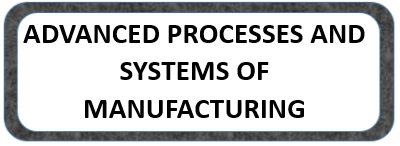How does it work?
ORGANIZATION CHART

Government and administrative bodies.
The government and administrative bodies of ERICA are the Institute council, the director and the secretary. The advisory body is the External Advisory Committee.
1St Section. Institute Council
Nature, composition, mandate and forming
The institute council is the collegiate body of government of the institute. It`s composed by:
- The director, who presides
- The secretary
- All doctor members of the institute
- A representative of the teaching and research staff, who is not assigned doctor of ERICA.
- Three doctorate students.
- A representative of the administration and services staff assigned to the institute.
The mandate of the institute council end past four years, except the representation of the doctorate students, which will be renewed each two years.
The institute director call for elections to pick the representative members. During the next seven days after the finalization of the corresponding election process, it will be built the new institute council.
The corresponding electoral board it will be of the ETSI.
Function
The following functions correspond to the institute council:
- To elaborate and approve the new proposals of modification for the internal rules of procedure from ERICA
- Establish their academic and services organization.
- To propose the election and, if it was the case, the destitution of the institute director.
- To gather information about the institute functioning.
- To approve the activities plan of the ERICA
- To elaborate the budget proposal and the endowments of the institute staff for their approval and their incorporation to the general budget project of the University, buy the Government Council.
- To administrate their resources inside of their budget and to distribute and organize the different task between their members.
- To approve, if it was the case, the accountability and annual report presented by the director of the institute.
- Look after the quality of the investigation and the other activities realized by the institute.
- To accept or reject the applications for incorporation of the new members, without prejudice on the UCA Statute of the teachers part.
- To raise the proposal of appointments and relay of the External Assessor Committee members.
- Any other attributed to it by the Statutes and other applicable rules.
Operating
- The creation of the Institute Council will require at first call, the attendance of at least 2/3 of the totally members, and at second call, it will requires at least 1/3 of their members.
- The Council will be convene at least once per semester. In addition, this Council will be meeting by a petition from the Director or, by write handed, from at least 20% of their members. At these cases, the Council will be meeting in a 20 natural day’s deadline at maximum.
- The ERICA Council`s agreements will be taken by simple majority of the members present at the time of voting.
- The Institute Council`s sessions could be held remotely, in accordance with the 40/2015 law`s provision of 1 October, of Legal Regime of the Public Sector. An agreement of the Institute Council will determine the means and procedure for that session`s holding.
- Any other aspect of the ERICA Council`s operating will be accordance with the provisions of the Government and Administration Regulations of the UCA.
2nd Section. The Director.
Nature
ERICA`s Director is an unipersonal position on the UCA, holds the representation of the Institute and exercises the functions of ordinary management and direction.
Elections and term of membership
- The institute Council will choose the Director among their doctor’s members with full-time dedication.
- The Director election will be on extraordinary session of the Institute Council. The Director will convene it or who replace him with this only target for the meeting. The meeting will be convened with an anticipation of at least one month before the expiration of the actual Director`s mandate.
- He will be proclaimed on the first round the candidate who accomplished more than half valid voted, and in second round who accomplished simple majority. This second round will be the next working day. On case of a standoff, it will choose by category and if necessary by antiquity.
- The mandate of the Director will last four years, and may be re-elected only one consecutive time.
- The election will be verified with the same requirements and procedures that are indicated in the UCA`s Statutes of the Department Director`s election.
Deputizing
In case of absence or illness of the Director, It will be replace by the doctor with more category and antiquity. The replacement can only exercise the necessary attributions for the ordinary office affairs.
Appointment and cease
- The ERICA`s Director will be appointment by the Rector once proclaimed by the competence body. That appointment will publish it on the BOUCA.
- It will cease by own proposal, by absence or superior incapacity during four consecutive month period, or by censure motion consequence, as provided in the regulation.
- If the Director ceases, it will be substitute on functions by the doctor teacher with more category and antiquity. The Acting Director must proceed to call the elections within a maximum period of fifteen days.
Motion of censure
- A third of the Council members can present a censure motion against the Director.
- The Institute director should convene, in a 20-day’s deadline maximum, the Institute Council in order to discuss this motion. In the discussion will debate one of the promoters of the initiative and the Director against which is the motions. The doctor teacher with more category and antiquity who does not present incapability will preside the reunion.
- The motion will required the favorable vote of at least 2/3 of the Institute Council members to be approved.
- In the case of the motion be approved, the Rector will be notified, and the substitute will proceed to convene the elections on a 30-day`s deadline maximum.
- If the motion does not thrive then those who had presented that motion cannot proceed to try again before a year.
Functions and powers
The following functions and competences belong to ERICA`s Director:
- Officially represent the Institute
- To preside and convene the Institute Council reunions, as like the execution of their agreements and look after their accomplishment.
- Monitoring the exercise of the functions entrusted to the different Institute body.
- To preside, in case of absence a higher rank, the academic events of the institute.
- To propose the Rector`s appointment as well as the cease of the secretary.
- Supervise the different Institute services and agree on the expense of the items corresponding budgetary.
- Exercise the other functions derivate from its position or which ones attributed by the current legislation, as well as ones that ERICA Council delegate to him and the related to all the others own matters of the Institute that have not specifically attributed to other bodies.
Incompatibilities and additional retribution
The general rules of incompatibility derived from the legislation will applied to the Director of ERICA, he will make the functions attributed to a Director of a Research University Institute of the UCA, with his other obligations and tasks.
The Government Council will regulate the economic rights of the Director as well as the regime of dedication time to teaching tasks.
3rd Section. The Secretary
Appointment and dismissal
- The Rector will appoint the secretary by the proposal of the Director from among the ascribed researchers with full-time dedication.
- The Secretary ceases by own petition, by absence or superior incapacity during four consecutive month period, by Director`s decision, or when the mandate of Director, who proposed the Secretary, ends.
- In case of absence, illness or incapacity the secretary will be substituted by who the Director choses.
Incompatibilities and additional retribution
- The general rules of incompatibility derived from the legislation will applied to the Secretary of ERICA, he will make the functions attributed to a Secretary of a Research University Institute of the UCA, with his other obligations and tasks.
- The Government Council will regulate the economic rights of the Secretary as well as the regime of dedication time to teaching task.
Functions
The following functions and competences belong to ERICA`s Secretary:
- Support the Director and do the functions assigned by him.
- Act as Secretary of the Council, to elaborate and keep the records of their meetings. To dispatch the certifications of the agreements included in the records previously mentioned.
- Issue the certificates and process the procedures of its competence.
- Exercise the rest functions derivate from its position or which ones attributed by the current legislation.
4th Section. External Advisory committee
Composition
The ERICA will have an External Advisory Committee without prejudice over others advisory bodies that might be created. The members of the Committee will be proposed by the Institute Council and, with the approval of the Research Commission of the UCA, appointed by the Rector.
The Advisory Committee will be composed by at least three researchers and a maximum of ten, or by high-qualified professionals with recognize expertise in the field of Institute`s research, who may not have contractual relationship with the UCA.
Functions
The following functions belong to the External Advisory Committee:
- Advise the Council and the Institute Management about related subjects of the Institute operation, the Scientific Areas, the researchers’ incorporation, the creation of groups and, in general, about the scientific policy to be develop on it, in accordance with the research lines of the institute and its Strategic Planning.
- Submit to the Governing Council of the UCA an annual report on the scientific activity of the Institute`s researchers. Where appropriate it will be suggest the relevant modifications in terms of its operation, its staff, its facilities, its financing and even about its Research Lines.
Operating environment
The External Advisory Committee will establish its own operating regimen but it will meeting at least once by year. The committee can carry out their meetings virtual, if they consider it so.
The members of the External Advisory Committee will last for 4 years. The renewal of the members will be carried out gradually by 50 % percentages, following the guidelines emanating from the Council of the Institute.







